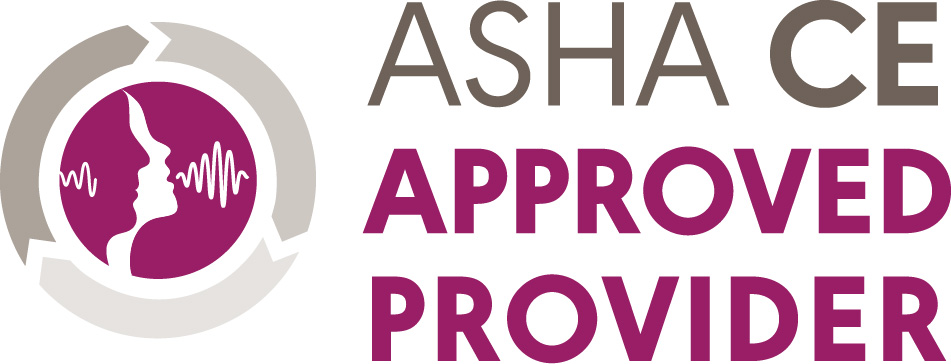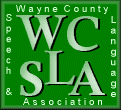Your cart is currently empty!
WCSLA and our approved sponsor, MSHA, present our 2024-2025 Workshop Series

- This event has passed.
Workshop1 2024-25: Learn it today – Use it Tomorrow! Practical Strategies to Develop Independent Executive Function Skills
Deadline to Register: October 2, 2024 at 4:00 pm ET
October 17, 2024 @ 8:30 am – 3:00 pm
Presented By: Sarah Ward, M.S., CCC-SLP
CEUs: 0.5 ASHA, 5 SCECH
Location: VisTaTech Center at Schoolcraft College

Description:
Executive function skills refer to the brain functions we use to manage our attention, our emotions and our behavior in pursuit of our goals. Young children rely on these skills to follow a sequence of instructions for daily tasks while older children need these skills to “break a task down” into a sequence of steps and organize a timeline as the demands for independent learning increases. When children enter the academic arena, successful task execution requires students to be aware of task demands and set goals. Then they must access forethought and hindsight to think in an organized way and to sustain their focus on the relevant features of the task at hand. As students mature they learn how to organize their time, space, materials and develop the reasoning skills to consider multiple possible solutions to problems, recognize the “gray” in situations, and manage both expected and unexpected changes in plans, routines, rules and novel situations. Students must fluidly shift between changing task demands and carry out multiple complex steps to achieve expected goals.
Self-regulation is essential for task execution and involves: 1) any action that allows students to stop and direct themselves, 2) how this action results in a change in their behavior, and 3) how this behavior changes the likelihood of goal attainment. Termed mimetic ideational information processing(MIME), individuals mentally ‘mime the idea’ and do a ‘dry run’ of their impending actions to simulate possible future scenarios. In effect, it is mental ‘trial and error.’
This is a practical strategies seminar! First you will learn how to clearly define what the executive function skills are for the purpose of determining the most effective treatment interventions. Understand the development of the executive function skills and what is meant by the term “executive dysfunction”. You will learn dozens of functional, ready-to-use strategies for teaching students how to develop executive function skills. Teach students to develop a “memory for the future”, to devise plans to achieve their goal, to use self-talk, to self-initiate, to transition to the next task of higher priority and to control their impulses and emotions to successfully self-regulate to complete a task. Improve a student’s awareness skills so that he/she can “read a room” then “stop, think and create” an appropriate action plan and infer possible outcomes. Teach students to see and sense the passage of time and carry out routines and tasks within allotted time frames. Learn how to use the Get Ready * Do*Done Model to turn the core curriculum and lesson/treatment plans into powerful tools to teach students executive control skills.
Course Objectives: As a result of this activity, the participants will be able to:
- State the functional working definition of what is meant by the term “executive function skills” as it pertains to therapeutic interventions.
- Describe the typical developmental course of the executive function skills
- Define how situational awareness, self talk, forethought , gesture/movement and episodic memory are the foundational skills for successful task execution
- Develop an intervention program to foster a student’s ability to form more independent executive function skills by describing therapeutic activities to improve:
- Situational awareness, self talk and forethought
- Self regulation and following routines
- Task planning, task initiation and transition within and between tasks
- Active self-management of the factors related to the passage of time
- Student management of materials
- Describe 4 methods for teaching a student the language of time, how to visualize and plan hourly and daily time
- List 3 interventions to teach a student how to visualize complex tasks and then sequence and plan the requisite steps to complete tasks and academic work
Sarah Ward, M.S., CCC-SLP, has over 25 years of experience in the treatment of executive dysfunction. Sarah is an internationally recognized expert on executive function and presents seminars on the programs and strategies she has developed with her Co-Director Kristen Jacobsen. Their 360 Thinking Executive Function Program received the Innovative Promising Practices Award from the National Organization CHADD. She has presented to over 1800 public and private schools and organizations worldwide. In recognition of their global influence in the field of twice-exceptional learning, Sarah and Kristen Jacobsen were the honored recipients of the Nancy Tarshis Legacy Fellowship Award. Further solidifying their status as eminent figures in their field, Sarah and Kristen were named one of the Top 10 Professional Development Providers for 2023 by Education Technology Insights Magazine.
Sarah Ward, Executive Functions: Learn it today – Use it Tomorrow! Practical Strategies to Develop Independent Executive Function Skills, is Co-Director of Cognitive Connections at The Center for Executive Function Skill Development. She is also Faculty at Department of Communication Sciences and Disorders School of Health and Rehabilitation Sciences MGH Institute of Health Professions, Boston, MA.
HIPAA Requirements: Presenter ensures the privacy of his/her patients/clients by refraining from using names, photographs or other identifiers in course materials without the patient/client’s knowledge and written authorization.
Disclosure: Financial: Sarah Ward’s company, Cognitive Connections, LLP, produces and sells the following products: a)Tracknets which are a tool that support students in developing an internal sense of time, 2) an academic daily planner which is an agenda book students use to record daily commitments, academic assignments and tasks which they need to complete, 3) a long term project planner, 4) A clock with a magnetic frame which does not make a ticking sound and we sell a countdown timer to support students in attending to the passage of time and 5) a large daily schedule that students can walk on to feel the passage of time. They also sell a number of products associated with their Get Ready * Do *Done Program. While the Time Tracker and Get Ready*Do*Done Program may be referenced in the talk, the products will not be directly referenced or presented on. Many of these materials can also be purchased from other online merchants and in community stores such as Staples or Target. Her website also offers many other free resources to teach executive function skill concepts: www.efpractice.com. While Sarah Ward receives intellectual property rights from the program she does not receive any financial royalty from the sale of products. Sarah Ward will receive a speaker’s honorarium for the presentation.
Non-financial: Sarah Ward, M.S., CCC/SLP is a member of the American Speech and Language Hearing Association

